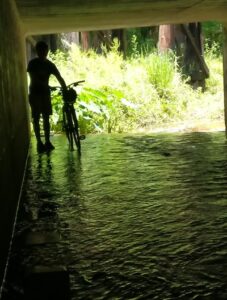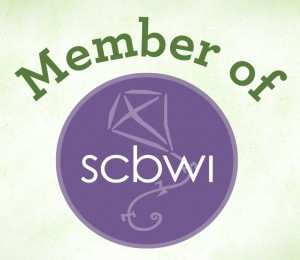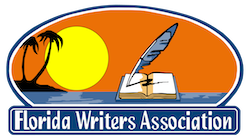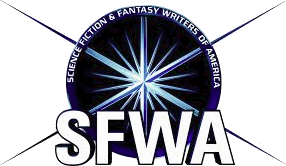The Blank Page
Have you ever been exploring? I go a lot: hiking, biking, kayaking, caving, wandering through strange cities, or even just going for long drives. If you explore enough, you will eventually find yourself well and truly lost.
Getting lost can be both terrifying and exhilarating. In that moment, the decisions you make can lead you to very real dangers. They can also reveal strange and wonderful discoveries.
There are time-tested strategies to take when you’re lost. If you’re in a city or driving through the countryside, you can most likely grab your phone and guide yourself to safety. If you’re in a wilderness, the sun or stars can be solid guidelines for figuring out north, south, east, and west.
Those techniques aren’t foolproof, however. Knowing which way is north doesn’t help you avoid snakes, alligators, or mama bears taking their cubs out for an afternoon stroll.
Just as important as those techniques is the first decision you make. Do you panic? Probably a bad idea. Do you sit down and hope someone will find you? Maybe, but that’s not always practical. Do you start trying to backtrack and find your way back? That could be the safest course.
Or, maybe, you take a deep breath and set off on a new adventure. You embrace the moment of being lost as an opportunity for something completely new.
It’s this last approach that can be the most satisfying. It requires more than a little courage and preparation, but in the end, it has the biggest payoff.

Let’s talk about blank pages.
As a fiction writer, staring at a blank page is very much like being lost. You can start your story in a million different ways. Of those, there are probably nine hundred thousand that won’t work. They’ll lead you down false paths, cause you to question your own ability, and waste more time than you have available.
So, what do you do?
Panicking is an option. Tell your friends you have writer’s block, and head outside for a bike ride.
Sitting and waiting is also possible. At some point, inspiration is sure to come, right?
Maybe you should go back to what you know. Re-read some of your favorite books, and see how they handled whatever type of scene you were thinking of writing.
Perhaps more outlining is the answer. Get everything all outlines and try again.
Or, maybe, you take a deep breath, acknowledge that you may head in the wrong direction, and just start writing.
A blank page has one big advantage over a wilderness adventure: you won’t actually die, no matter how badly you mess up. You might feel like you did, but at the end of the day, you’ll still be there.
For me, it’s the attitude of exploration that’s all important.
If you don’t know what that story is, be patient with yourself. See what you produce.
If you don’t know where to start the story, understand that when you’re facing a blank page, where you start is kind of irrelevant. You’re going to be coming back to the beginning, anyway.
When I started Dragon Run (the first time), I chose the completely wrong main character, a man named Magister Lundi.
You could (correctly) argue that I wasted a lot of time writing about Magister Lundi. I certainly felt that way for a while, but time and distance have given me a clearer perspective. Realizing that he was not my protagonist unlocked a world of possibilities for me. Having seen the story from his perspective, I was able to more fully understand the challenges facing Al.
With Bradley’s Dragons, I made a different mistake. I started writing the book at the wrong time in the story. I actually made that mistake multiple times. When to start the book became a topic of significant debate among my editors. I think it might be one of the reasons that Scholastic never picked it up.
Did that mistake set me back? No doubt, but it led to a hundred other discussions and considerations that enriched the story.
Enough about my stories of getting lost. It’s time to get to yours. Here are some specific techniques that you can try when you’re facing blank page paralysis.
Technique 1: Music
Look up from your blank page and consider the kind of story you want to write. What’s the tone you’re looking for? Ominous? Hopeful? Suspenseful? Funny? Throw the appropriate music on and close your eyes. Think about your story. When your first idea comes to you, stop yourself from writing. Keep thinking. Keep listening. Twist it around in your head. When you can’t hold it in any longer, open your eyes and start writing.
I visualize this approach as revving a race car at the start of a race. The engine is screaming. The steering wheel is shaking. The smell of burning oil is filling your nostrils. By the time you hit the gas, you’re going to write like there’s no tomorrow.
Technique 2: Stream of Consciousness
Stream of consciousness writing can help you get the creative juices flowing. I always use a pen and paper, but you can go with a keyboard if you prefer. Here’s how.
First, eliminate all distractions. Turn off the music, close the doors, get yourself in as quiet a state as you can.
Now, pick up your pen or keyboard and force yourself to start writing. Don’t wait for thoughts to come. Don’t try to make things connect. Just write.
Many writers (myself included) have problems with “just writing.” The solution is to have a key phrase that you always start with. Mine is “But Yet Not For”. I write those words, and then just keep writing, spewing out whatever words come into my head.
I’ll give it a shot right now, so you can see what I’m talking about.
But yet not for I don’t know how many techniques I should be including in this article. too many and the thing might as well be its own book wish I had some pizza. Shouldn’t write these articles during lunch time.
That’s enough of that. The key is to not stress about anything, but to keep the pen moving. Write whatever words come into your head. If none come, create them.
This technique can be exhausting. It can be revelatory (was I really thinking that?). It can be frustrating. It also can be really helpful. It gets you out of your “thinking” self and into your “writing” self, and takes down some of the barriers that are causing the blank page to be so intimidating
Technique 3: The Conversation
I’m including this one both for completeness and because I’ve had so many people say it works. The idea is to imagine a conversation between you and your main character.
Imagine you’re at a party and you’re questioning your main character. Write down a question (what’s your name, where are you from, what school do you go to, what do you do, etc), and then answer it from the character’s point of view.
This doesn’t work for me, but it might for you. I know writers who swear by it.
Technique 4: The Big View
Some writers (myself included) occasionally get stopped by the details. Staring at that blank page, it’s easy to start spinning about what details to write.
With this technique, you leave them all out.
For example, Al stands outside Castle Surflienne, waiting for Testing Day to start. His friends Wisp and Trilla join him. The castle gates open . . .
You get the idea. Write a paragraph (or a page) of the big view, and then start over. Sometimes, that big view is enough to get you into the story and separate you from thinking about the blank page.
Technique 5: Go Small
This one is my favorite, and the one I use the most. Instead of starting with the big view, close your eyes and picture what your main character is seeing in the first scene.
You don’t have to write in first person. Just focus on the details of what the character is experiencing. Seeing those details is a window into how your character sees those details, which leads to being in the mindset of that character. Once you get to that point, you’re not so much writing the story as you are channelling it.
Here’s the beginning of The Boy With The Sword, which comes directly from this technique:
Al stared at the giant black-scaled head. It lay on its side, with its mouth open so wide he could have walked inside it. He shivered. The dragon’s dead eyes seemed to be staring right at him.
Get Exploring!
Whatever technique you do or don’t try, the more important thing is attitude. That blank page might seem scary, but it’s really not. It’s a giant opportunity waiting to be explored.
Attack your writing with that attitude. You’re not working against the page, not struggling to fight the story, not terrified to make a mistake. You’re exploring a crazy unpredictable world, making discoveries and building connections.
One last thing…
The next time you get lost, please be careful. Particularly, if you’re in the wilderness, and most particularly if you don’t have any experience in that wilderness.
Unlike a blank page, an alligator can, quite literally, bite your head off.
Want to comment? Hit me up on Threads or Facebook!



